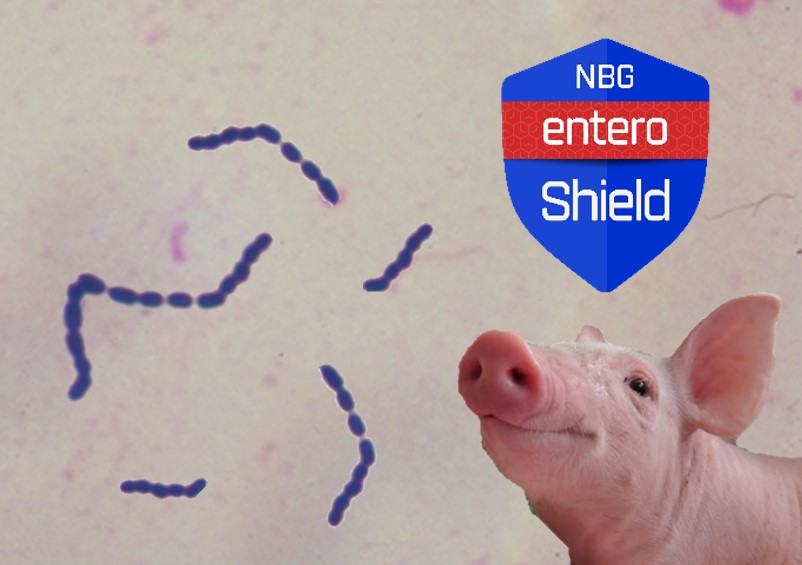The effect of curcumin against streptococcal biofilms

Dear colleagues,
Streptococcal disease in pigs is an endemic problem caused by Streptococcus suis, recognized mainly by neurological clinical signs associated with meningitis, joint stiffness, and post-weaning mortality. The disease is associated with colonization of the tonsils and respiratory tract, although a gastrointestinal route of infection has also been demonstrated in piglets.
In the latter case, malabsorption syndrome associated with a destruction of intestinal mucosal integrity leading to inflammation, intestinal immunosuppression, and bacterial translocation, including S.Suis, appears to be a key factor.
Thus, S.Suis, faced with a damaged and defenseless mucosa, seems to be one of the main beneficiaries, being able to create self-defense biofilms against the immune system and antibiotics.
A possible solution that we propose in this article would be to use products with curcumin as multiple studies have shown its ability to neutralize the biofilm of the genus Steptococcus, it would also be a good anti-inflammatory of the mucosa if we keep the curcumin protected until it reaches the intestine.
In Nutribiogenics we have developed NBG EnteroShield a product that thanks to NBG Bioboost technology achieves the maximum potential of curcumin and thanks to NBG Protect technology protects it from oxidation until it reaches the intestine, once there a slow-release mechanism distributes our product having first an anti-inflammatory action and once oxidized an antimicrobial action:
To conclude, We attach an interesting article showing the potent effect and mechanisms of action of curcumin on Streptococcus and Candida biofilms.
Enjoy the article!

